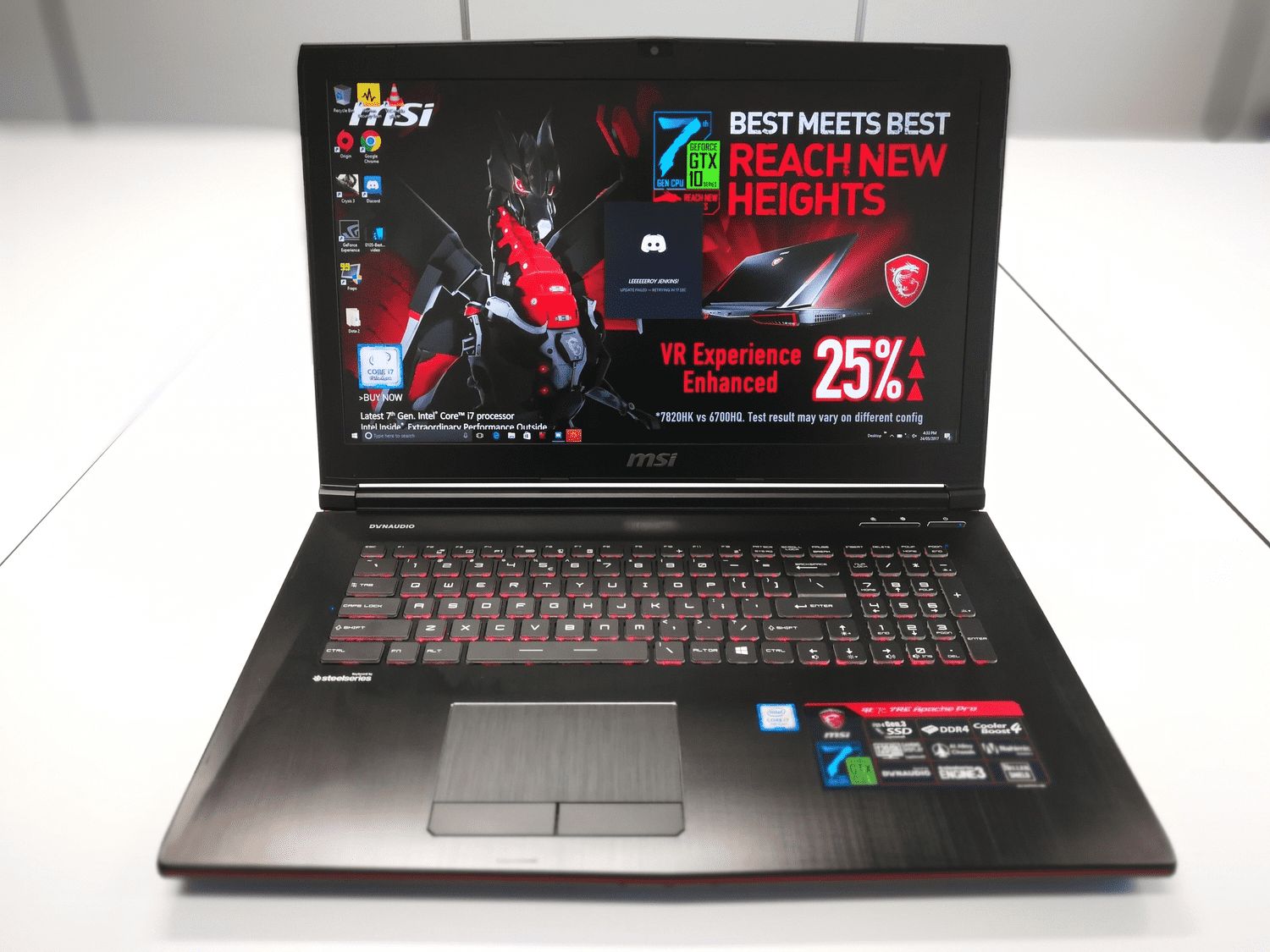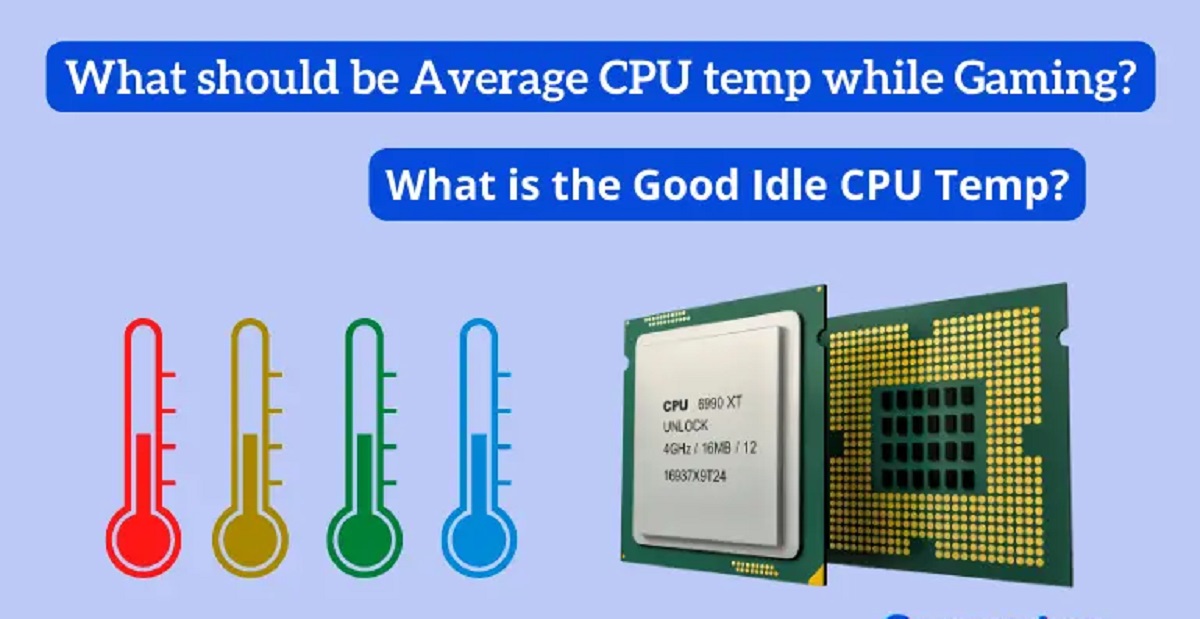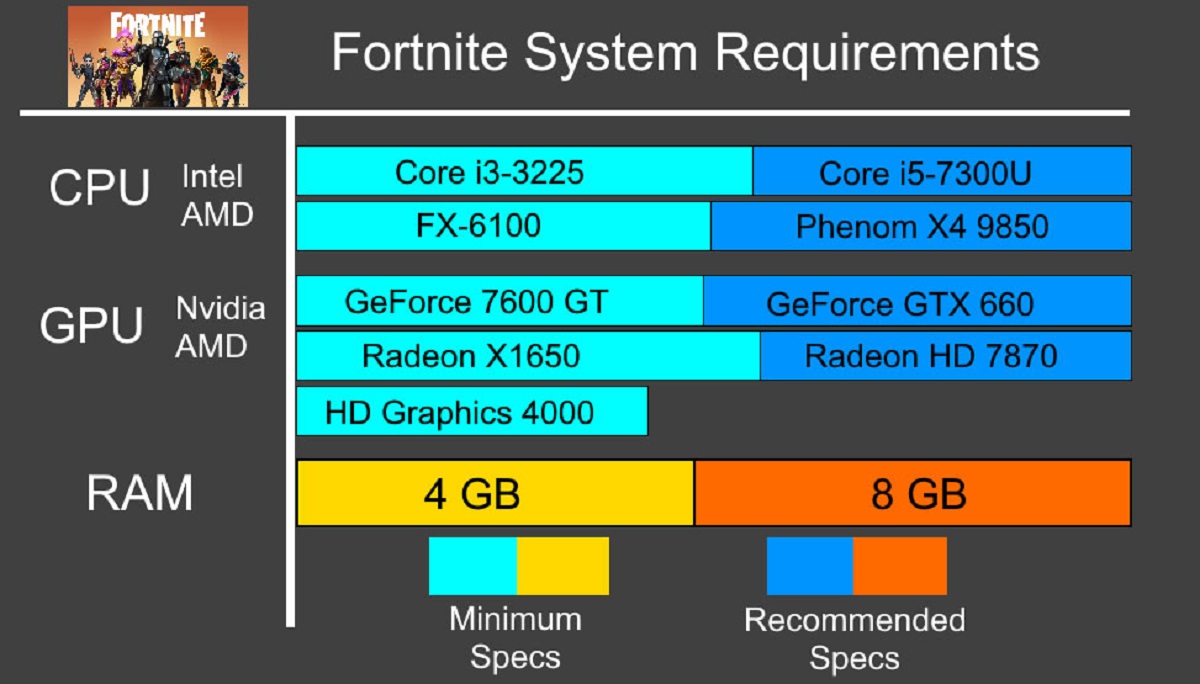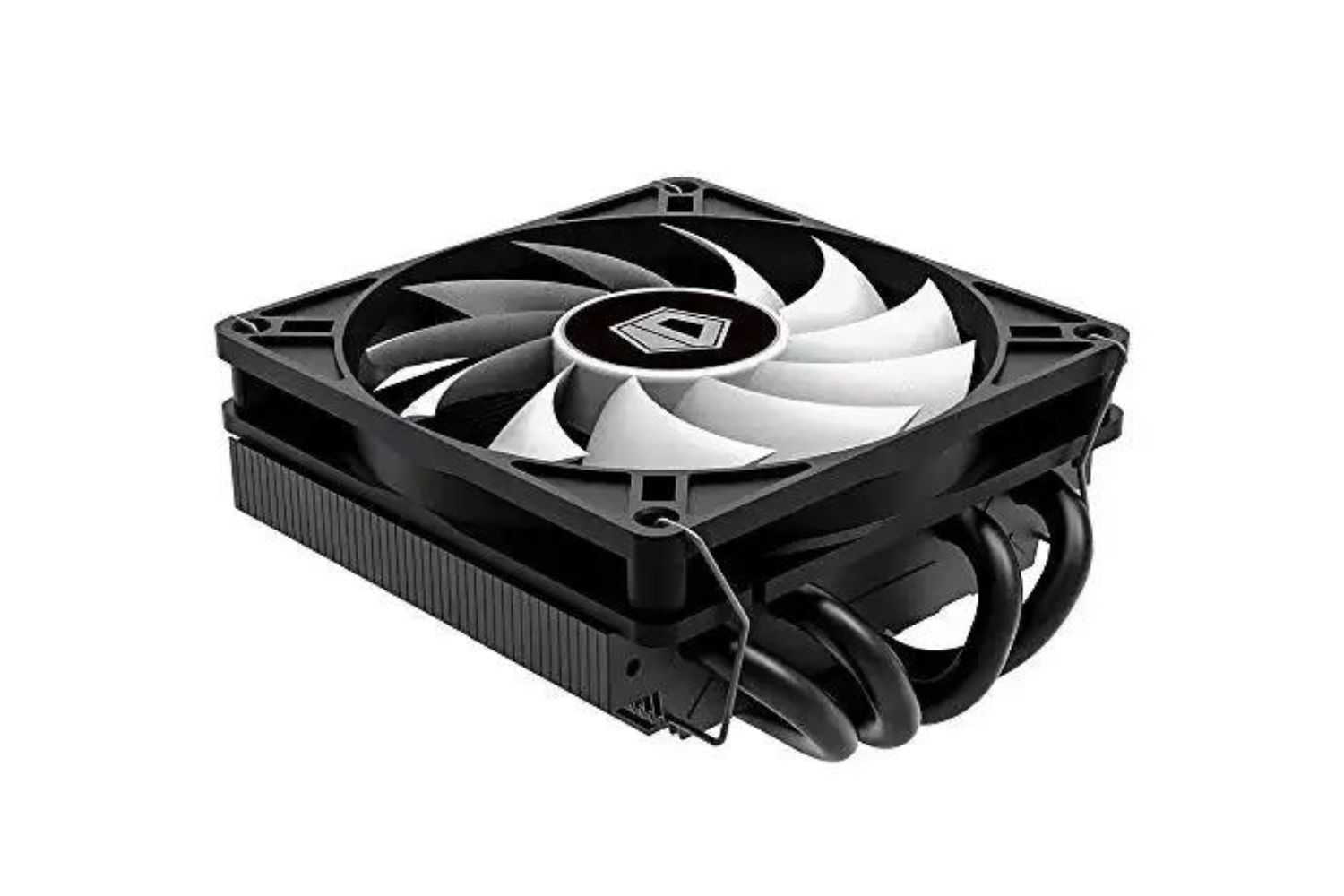Introduction
Gaming has become an increasingly popular form of entertainment, with millions of people around the world immersing themselves in virtual worlds. If you are an avid gamer, you understand the importance of having a powerful gaming setup that can handle the latest and most demanding games.
When it comes to gaming, one of the key components that has a significant impact on the gaming experience is the Central Processing Unit, or CPU for short. The CPU is often referred to as the “brain” of the computer, as it handles all the calculations and instructions necessary to run various software and applications, including games.
In this article, we will delve into the world of CPUs and explore how they affect gaming performance. We will discuss important factors such as clock speed, cores and threads, cache size, and the concept of bottlenecking in gaming. Furthermore, we will provide valuable insights on how to choose the right CPU for gaming and explore the possibility of overclocking your CPU to squeeze out even more performance.
Whether you are a casual gamer or a competitive esports player, understanding how the CPU affects gaming performance can help you make informed decisions when building or upgrading your gaming rig. So, let’s dive in and unravel the fascinating relationship between CPUs and gaming!
What is a CPU?
Before we delve into how a CPU affects gaming, let’s start with the basics and understand what a CPU actually is. CPU stands for Central Processing Unit, and it is often referred to as the “brain” or “heart” of a computer. It is a small chip that is responsible for executing instructions and performing calculations.
The CPU is composed of several components, including the arithmetic logic unit (ALU), control unit, registers, and cache memory. The ALU carries out basic arithmetic and logical operations, while the control unit coordinates the activities of the other components. The registers store data and instructions that are currently being processed, and the cache memory provides faster access to frequently used instructions and data.
The CPU communicates with other hardware components, such as the GPU (Graphics Processing Unit), RAM (Random Access Memory), and storage devices, through various buses and interfaces. It retrieves instructions and data from the RAM, processes them, and sends the results to the appropriate components for further processing or display.
In modern gaming systems, the CPU plays a crucial role in determining the overall performance and responsiveness of the system. It handles tasks such as physics calculations, artificial intelligence calculations, and game logic processing. The more powerful and efficient the CPU, the smoother and more immersive the gaming experience.
It is also important to note that the CPU’s performance is influenced by factors such as clock speed, number of cores and threads, and cache size. These specifications play a significant role in determining how quickly and efficiently the CPU can execute instructions and handle multiple tasks simultaneously.
Now that we have a solid understanding of what a CPU is and its role in a computer system, let’s explore how the CPU performance relates to gaming performance.
CPU Performance and Gaming
When it comes to gaming, the performance of your CPU can greatly influence the overall gaming experience. The CPU is responsible for handling various tasks in a game, such as physics calculations, artificial intelligence, and game logic. A powerful CPU can ensure smooth gameplay, reduce lag, and provide faster loading times.
One of the key factors that determine CPU performance is clock speed, measured in gigahertz (GHz). The clock speed represents how many cycles the CPU can execute per second. A higher clock speed generally means that the CPU can process instructions more quickly, resulting in faster computations and smoother gameplay.
However, clock speed alone is not the sole determinant of CPU performance. The number of cores and threads also plays a crucial role. A core is like a separate processor within the CPU, capable of independently executing instructions. Threads, on the other hand, allow a single core to handle multiple tasks simultaneously. Games that are optimized for multi-threading can take advantage of CPUs with more cores and threads, resulting in better performance.
Another important aspect of CPU performance is cache size. The cache is a small, high-speed memory located directly on the CPU. It stores frequently accessed instructions and data, allowing the CPU to retrieve them quickly. A larger cache can reduce the time it takes for the CPU to fetch instructions, resulting in improved performance and responsiveness.
It is worth mentioning that in some cases, the CPU’s performance can become a bottleneck for gaming. This occurs when the CPU cannot keep up with the demands of the game, causing a drop in performance. This is especially prevalent in CPU-intensive games or when pairing a powerful GPU with a weaker CPU.
Therefore, when choosing a CPU for gaming, it is essential to consider a balance between clock speed, number of cores and threads, and cache size. It is advisable to consult the system requirements of the games you plan to play, as well as consider the level of graphical fidelity and resolution you desire. This will help you determine the optimal CPU for your gaming needs.
Now that we understand the relationship between CPU performance and gaming, let’s explore how to choose the right CPU for your gaming setup.
CPU Clock Speed
CPU clock speed is one of the most important factors that determine the performance of a CPU in gaming. Measured in gigahertz (GHz), the clock speed represents how many cycles the CPU can execute per second. A higher clock speed generally means that the CPU can process instructions more quickly, resulting in faster computations and smoother gameplay.
When it comes to gaming, a higher clock speed can lead to improved performance and reduced lag. Games often rely on real-time calculations and reactions, and a faster CPU can ensure that these calculations are executed swiftly and accurately. This is particularly beneficial in fast-paced, action-packed games where split-second decisions can make all the difference.
However, it is important to note that clock speed alone does not guarantee better gaming performance. Other factors, such as the number of cores and threads, cache size, and the efficiency of the CPU architecture, also play a significant role. Games that are optimized for multi-threading can take advantage of CPUs with multiple cores and threads, leading to improved performance in tasks that can be divided among multiple processing units.
It is worth mentioning that clock speed is not the only consideration when comparing CPUs. Different CPU models with the same clock speed may still have varying performance levels due to architectural differences and optimizations. Therefore, it is essential to consider a combination of clock speed, core count, and architecture when selecting a CPU for gaming.
Additionally, it is important to note that not all games are equally demanding on the CPU. Some games, especially those with detailed graphics and complex physics calculations, require a more powerful CPU to achieve smooth performance. On the other hand, less demanding games may not require the highest clock speed available on the market.
When choosing a CPU for gaming, it is recommended to consider the specific requirements of the games you plan to play. This information can usually be found in the game’s system requirements. By matching the recommended CPU specifications with your intended gaming experience, you can ensure that you have a CPU capable of delivering the performance you desire.
To summarize, CPU clock speed is an important factor in determining gaming performance. A higher clock speed generally leads to improved performance and reduced lag in games. However, it is essential to consider other factors such as core count, thread count, cache size, and CPU architecture to fully understand the capabilities of a CPU. Understanding the specific requirements of the games you plan to play can help guide you in selecting the right CPU for your gaming needs.
CPU Cores and Threads
When it comes to CPU performance in gaming, the number of cores and threads is a crucial factor to consider. A core is like a separate processor within the CPU, capable of independently executing instructions. Threads, on the other hand, allow a single core to handle multiple tasks simultaneously. Having more cores and threads can offer significant benefits for gaming performance.
In modern gaming, many titles are designed to take advantage of multi-threading, which allows for better distribution of workload across multiple cores and threads. Games that are optimized for multi-threading can utilize the available cores and threads to improve overall performance and increase efficiency.
Having more cores and threads enables the CPU to handle multiple tasks simultaneously, such as physics calculations, artificial intelligence, and game logic. This can result in smoother gameplay, reduced lag, and faster loading times. In CPU-intensive games or games with complex graphics and physics simulations, having a higher core and thread count can significantly enhance the gaming experience.
The number of cores and threads needed for optimal gaming performance depends on various factors, including the demands of the games you intend to play. It is worth noting that not all games are equally demanding on the CPU. While some games can benefit greatly from a higher core and thread count, others may not utilize additional cores and threads efficiently.
Additionally, the CPU architecture also plays a role in how effectively the cores and threads are utilized. Different CPU models with the same core and thread count may still perform differently due to architectural differences, such as the efficiency of instruction handling and cache management.
When choosing a CPU for gaming, it is advisable to consider the recommended system requirements of the games you plan to play. This information can usually be found on the game’s website or packaging. By matching the recommended CPU specifications with your gaming needs, you can ensure that you have a CPU capable of delivering smooth and efficient performance.
To summarize, having more cores and threads can contribute to better gaming performance, especially in games that are optimized for multi-threading. However, the impact of core and thread count on gaming performance can vary depending on factors such as game optimization, CPU architecture, and the specific requirements of the games you play. Considering these factors will help you make an informed decision when choosing a CPU for gaming.
CPU Cache
When it comes to CPU performance in gaming, the size and efficiency of the CPU cache can have a significant impact. The cache is a small, high-speed memory located directly on the CPU. It stores frequently accessed instructions and data, allowing the CPU to retrieve them quickly. The cache acts as a buffer between the CPU and main memory (RAM), reducing the time it takes for the CPU to fetch instructions and data.
There are typically different levels of cache in a CPU, including L1, L2, and L3 caches. The L1 cache is the smallest but fastest, followed by the L2 and L3 caches, which are larger but slower. The goal of the cache hierarchy is to provide a balance between speed and capacity, ensuring that the most frequently accessed instructions and data are stored in the fastest cache closer to the CPU.
A larger and more efficient cache can result in improved gaming performance. Games often require quick access to instructions and data, especially for rendering graphics, physics calculations, and artificial intelligence. If the CPU cache is too small, the CPU may need to fetch instructions and data from the slower main memory more frequently, leading to increased delays and potential performance bottlenecks.
When selecting a CPU for gaming, it is essential to consider the cache size and its efficiency. However, it is worth noting that cache size alone is not the sole determinant of performance. CPU architecture and overall efficiency also play a role in how effectively the cache is utilized.
Additionally, games with larger file sizes and complex graphics may benefit more from a larger cache. However, less demanding games may not see a significant impact from cache size, as their requirements may be better met by other CPU features.
It is important to remember that the cache size is just one aspect to consider when choosing a CPU for gaming. It should be evaluated alongside other factors, such as clock speed, core count, and architecture, to ensure optimal gaming performance.
In summary, the CPU cache is a crucial component that can affect gaming performance. A larger and more efficient cache allows for faster retrieval of frequently accessed instructions and data, resulting in improved gaming performance. However, cache size is just one factor to consider when selecting a CPU, and other aspects such as clock speed, core count, and overall CPU architecture should also be taken into account.
Bottlenecking in Gaming
When it comes to optimizing gaming performance, it is important to understand the concept of bottlenecking. Bottlenecking refers to a situation where one component of a system limits the performance potential of the entire system. In the context of gaming, CPU bottlenecks can occur when the CPU is unable to keep up with the demands of the game, thus restricting the overall gaming performance.
Bottlenecking can occur in different parts of a gaming system, such as the CPU, GPU, RAM, or even storage devices. However, the focus here is on CPU bottlenecks. CPU bottlenecks typically occur when there is an imbalance between the CPU performance and the capabilities of other components.
For example, if you pair a powerful graphics card with a relatively weaker CPU, the CPU may struggle to process instructions and calculations fast enough to keep up with the GPU’s rendering capabilities. This can result in lower frame rates, stuttering gameplay, and overall reduced gaming performance.
Bottlenecks in gaming can also affect other system components. For instance, if the CPU is unable to feed data to the GPU quickly enough, the GPU may be underutilized, resulting in lower graphics performance. Similarly, if the CPU is not able to provide instructions to the RAM efficiently, it can limit the speed at which data is accessed and processed, impacting overall system performance.
Identifying CPU bottlenecks can be challenging, as it requires monitoring system performance and analyzing data to determine if the CPU is indeed limiting performance. Tools such as CPU monitoring software can provide valuable insights into CPU usage, temperature, and overall performance during gameplay.
Reducing or eliminating CPU bottlenecks in gaming can be addressed through various strategies. One solution is to upgrade to a more powerful CPU that can better handle the demands of the game or consider overclocking the existing CPU to boost performance. Another approach is to optimize in-game settings, reduce graphical effects, or adjust the game’s resolution to lessen the CPU load. Additionally, making sure that other system components, such as the GPU and RAM, are not being underutilized or bottlenecked by other factors can also help improve overall performance.
It is worth noting that eliminating CPU bottlenecks may not always be possible, depending on the limitations of the system or budget constraints. However, understanding the concept of bottlenecking and taking steps to mitigate its impact can significantly enhance gaming performance.
In summary, bottlenecking in gaming occurs when the performance of one component, such as the CPU, limits the overall performance of the system. CPU bottlenecks can result in lower frame rates, stuttering gameplay, and reduced gaming performance. Identifying and addressing CPU bottlenecks may involve upgrading the CPU, optimizing in-game settings, or ensuring that other components are not being bottlenecked. Understanding and mitigating bottlenecking can help maximize gaming performance and ensure a smoother and more enjoyable gaming experience.
How to Choose the Right CPU for Gaming
Choosing the right CPU for gaming is essential to ensure optimal performance and a smooth gaming experience. With the wide range of options available, it can be overwhelming to navigate through the specifications and features. However, by considering a few key factors, you can make an informed decision and select a CPU that meets your gaming needs.
1. Performance Requirements: Begin by assessing the performance requirements of the games you plan to play. Pay attention to the recommended system requirements provided by game developers. Consider factors such as the desired level of graphical fidelity, resolution, and expected frame rates. This will help you determine the necessary CPU performance level.
2. Clock Speed and Cores: Look for a CPU with a high clock speed to ensure fast and responsive gameplay. Additionally, consider the number of cores and threads as games start utilizing multi-threading more efficiently. More cores and threads can provide better performance in CPU-intensive tasks and future-proof your gaming setup.
3. Cache Size: The larger the CPU cache, the faster the CPU can retrieve instructions and data. A larger cache can improve overall performance and reduce potential bottlenecks. Look for CPUs with generous cache sizes, such as L3 caches of 8MB or higher.
4. Compatibility: Ensure that the CPU is compatible with your motherboard. Check the socket type and the supported CPU models specified in the motherboard’s documentation. If you plan to upgrade, make sure your motherboard supports the desired CPU.
5. Budget Considerations: Determine your budget for the CPU. Consider the performance improvements gained from higher-priced CPUs compared to the budget-friendly alternatives. Keep in mind that gaming performance is influenced by other components as well, so allocating a balanced budget for the entire gaming system is crucial.
6. Future-Proofing: Consider the longevity of the CPU. Investing in a powerful CPU with good upgrade potential can save you the hassle of frequent upgrades in the future. Look for CPUs that offer a good balance of current performance and future compatibility.
7. Reviews and Benchmarking: Research and read reviews or benchmarks of CPUs to get insights into their real-world performance. Professionals and enthusiasts often compare CPUs in various gaming scenarios, which can help you make an informed decision based on real-world experiences.
Remember, choosing the right CPU involves finding a balance between your gaming performance needs, budget, and other system requirements. It’s also worth checking for any deals or discounts to get the best value for your money.
In summary, determining the right CPU for gaming requires considering factors such as clock speed, core count, cache size, compatibility, budget, future-proofing, and reviews. By evaluating these aspects and aligning them with your gaming requirements, you can select a CPU that delivers the performance and experience you desire.
Overclocking the CPU
For gamers seeking even more performance from their CPUs, overclocking can be a viable option. Overclocking refers to running a CPU at a higher clock speed than its default specifications. By increasing the clock speed, the CPU can perform calculations and instructions at a faster rate, potentially resulting in improved gaming performance.
Before attempting to overclock your CPU, it is important to note that it carries some risks. Overclocking can cause increased heat generation, which may require enhanced cooling solutions to prevent overheating. Additionally, overclocking your CPU may void its warranty, so it is crucial to understand the potential consequences and take necessary precautions.
When overclocking, there are several factors to consider:
1. CPU Capability: Not all CPUs are created equal in terms of their overclocking potential. Some CPUs are known to overclock better than others due to variations in manufacturing processes and architecture. Research and read reviews to understand the overclocking capabilities of your specific CPU model.
2. Cooling Solutions: Overclocking generates more heat, so it is essential to have adequate cooling solutions in place. Upgrading to a high-performance CPU cooler, such as an aftermarket air cooler or liquid cooling, can help maintain stable temperatures during overclocking.
3. Voltage Settings: Increasing the voltage supplied to the CPU can often enable higher overclocks, but it also generates more heat. It is important to find the right balance between voltage and temperature to avoid stability issues and potential damage to the CPU. Incrementally increase the voltage while monitoring temperatures to ensure safe and stable operation.
4. Stability Testing: After overclocking, it is crucial to thoroughly test the stability of the system. Stress testing tools, such as Prime95 or AIDA64, can help identify any stability issues or crashes. If instability occurs, adjustments may be needed, such as lowering the clock speed or increasing voltage settings.
5. Monitor Temperatures: Keeping an eye on CPU temperatures is essential during overclocking. Excessive heat can lead to instability and long-term damage. Utilize temperature monitoring software to ensure that the CPU stays within safe operating limits.
6. Gradual Approach: Overclocking should be approached gradually, making small changes to the clock speed and testing for stability at each step. Rushing into high clock speeds can lead to instability and may force you to revert to default settings without achieving the desired performance gains.
It is crucial to educate yourself on the specific overclocking techniques for your CPU and motherboard. Many online communities and forums provide overclocking guides and discussions related to specific hardware configurations.
Remember, overclocking is not a guaranteed method to improve gaming performance, and the results can vary depending on the individual CPU and other system components. While successful overclocking can provide a noticeable performance boost, it is also important to weigh the potential risks and take necessary precautions.
In summary, overclocking the CPU can potentially enhance gaming performance by increasing the clock speed. However, it comes with risks and considerations such as cooling solutions, voltage settings, stability testing, temperature monitoring, and taking a gradual approach. Proper research and understanding of your specific hardware are key before attempting to overclock your CPU.
Conclusion
Choosing the right CPU and understanding its impact on gaming performance is crucial for any avid gamer. The CPU acts as the brain of the computer, handling calculations and instructions necessary for running games smoothly. Factors such as clock speed, core count, cache size, and compatibility all play a role in determining CPU performance in gaming.
Overclocking the CPU can provide additional performance gains but carries risks and requires careful consideration of factors such as cooling solutions, voltage settings, and stability testing. It is important to weigh the benefits against the potential drawbacks and ensure proper research and precautions are taken.
Bottlenecking can occur when the CPU cannot keep up with the demands of the game, limiting overall performance. Addressing bottlenecking involves balancing CPU performance with other system components, optimizing in-game settings, and considering future-proofing.
When choosing a CPU for gaming, it is crucial to consider performance requirements, budget, and compatibility. Researching reviews, benchmarks, and recommendations can help in making an informed decision.
Understanding these aspects and making the right choices when it comes to CPU selection and optimization can result in a smoother, more immersive gaming experience. Whether you are a casual gamer or a competitive player, having a powerful CPU that is well-suited for gaming will enhance your gaming enjoyment and provide the necessary performance to handle the latest and most demanding games.
So, take your time, assess your needs, consider the specifications, and choose wisely. With the right CPU, you can unlock the full potential of your gaming rig and immerse yourself in the exciting world of gaming.

























